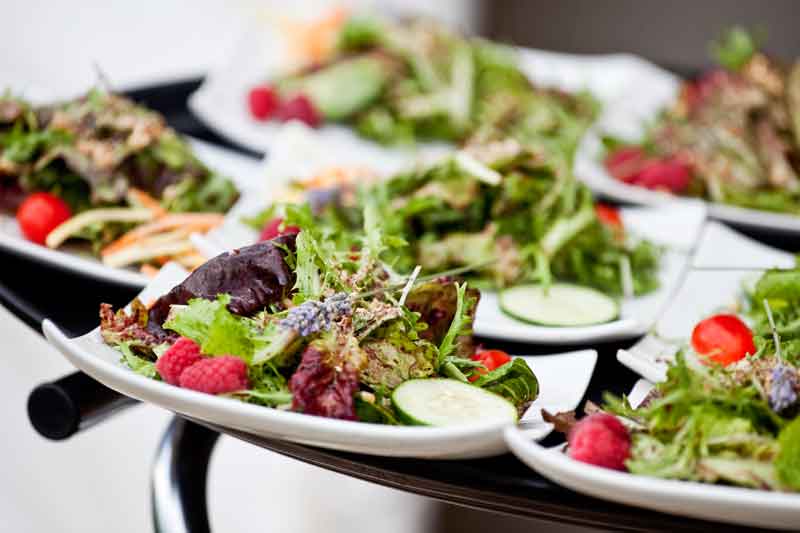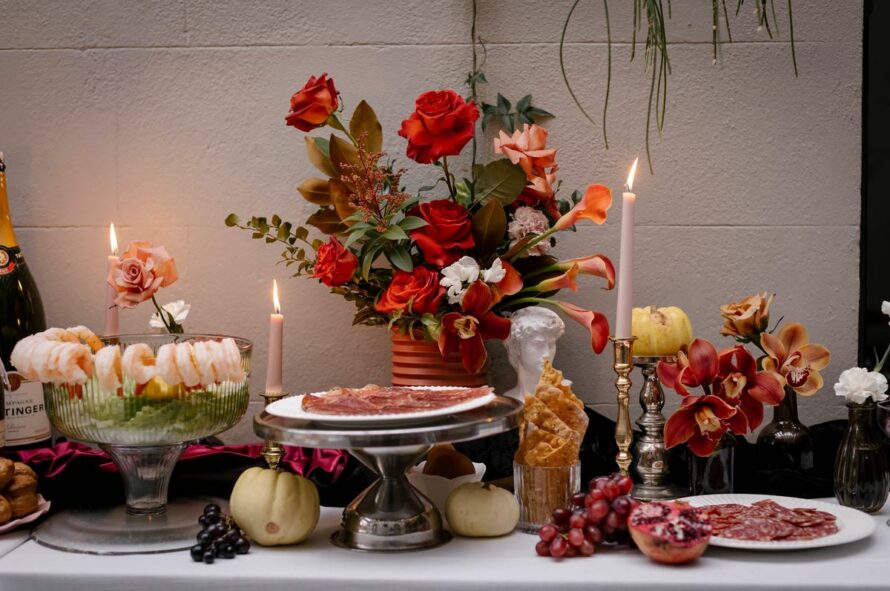There was a time, not all that long ago, when wedding guests had a choice of chicken or beef. On some tables the main courses were simply served alternately. If you had the beef land in your lap and wanted chicken, a little plate-swapping probably took place.
A vegetarian would eat their greens and leave the rest.
Today we’re far more food conscious. People have allergies or religious or philosophical beliefs which influence their eating patterns. And that’s before we even get to those on a diet. So planning to feed your wedding guests has suddenly become a lot more complicated.
Even though every wedding is unique, it’s unlikely you’ll have every guest happy to eat anything.
And because you want everything to go swimmingly on your big day, knowing about basic food requirements is a good idea.
[ew-supplier-carousel]
It’s important to understand that some people eat what they do because of their health, while others may be influenced by their beliefs. Some are guided by more than one reason and every reason is valid.
As far as the menu goes, the best wedding reception providers will be one step ahead of you. Nevertheless, knowledge is power and you’ll give yourself additional negotiating skills if you know the main dietary facts. Here’s a run-down.
Gluten-free
Gluten is a mixture of proteins found in cereals particularly wheat. Gluten gives dough its elasticity. Some people are gluten-intolerant. If they consume food with gluten, when the food is broken down in digestion, their body produces an abnormal immune response. The most common reaction occurs in the form of celiac disease. Fewer than one per cent of the population is affected but covering every base is your best approach.
Lactose-intolerant
This is where a child or adult can’t properly digest milk sugars. It’s not only milk because other dairy products can have the same impact. The consequences are unpleasant with bloating and abdominal pain being two of the symptoms. Experts believe dairy products should not be eliminated entirely but sensible dietary management is important.
Vegetarian
A vegetarian is someone who doesn’t eat the flesh of animals including fish. People choose to become a vegetarian for various reasons. It could be out of respect for animals, for dietary or for religious reasons. Most restaurants — and by definition, wedding reception venues — offer a selection of dishes for vegetarians.
Vegan
A vegan is someone who does not use or consume animal products. This relates to food, clothing and other items. Again it can be the result of a dietary need or a religious or philosophical belief.
Pescatarian
A pescatarian abstains from eating meat, just as a vegetarian does, but they will eat fish.
What to do?
Obviously talking to the catering manager at your wedding venue is essential. If they are experienced and good at what they do, they will know about allergies and special food requirements.
Because obesity is a major issue today, there are ways to decrease the amount of sugar in such things as cupcakes, even wedding cakes, without compromising on taste. Mind you, there are no restrictions on the appearance of your food.
You can, politely, ask your guests when replying, to note any special food requirements. There are different ways to do this.
If you have a small wedding, you could hop on the phone and get the answers. If the RSVP contains a simple, Please list any dietary requirements followed by a blank line, you should be covered. Just be prepared for some cheeky replies.
Bon appetit.




